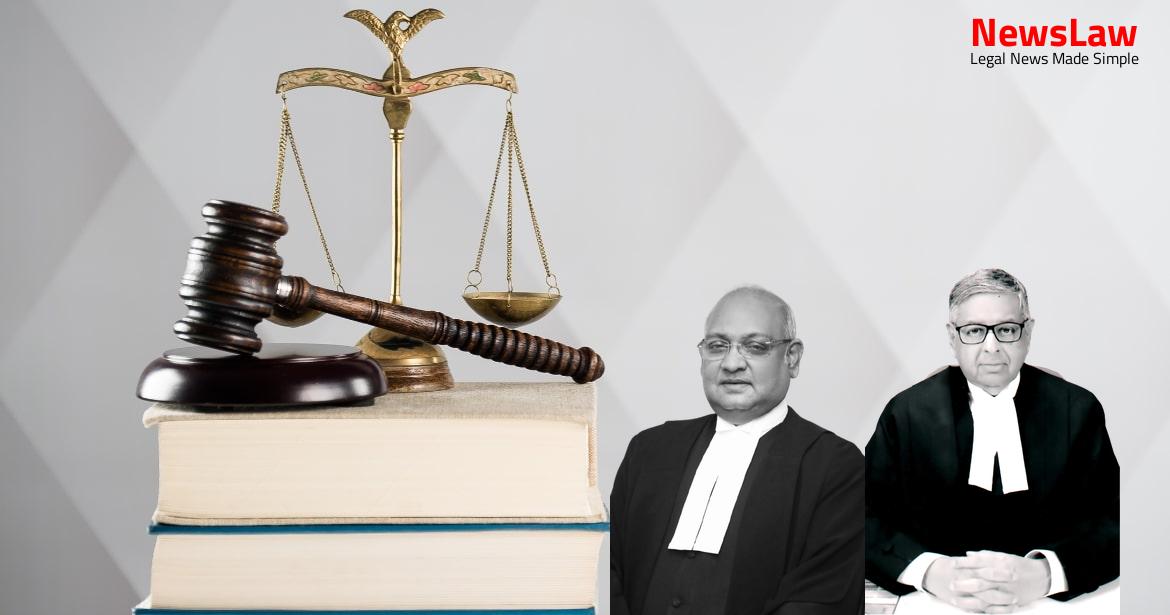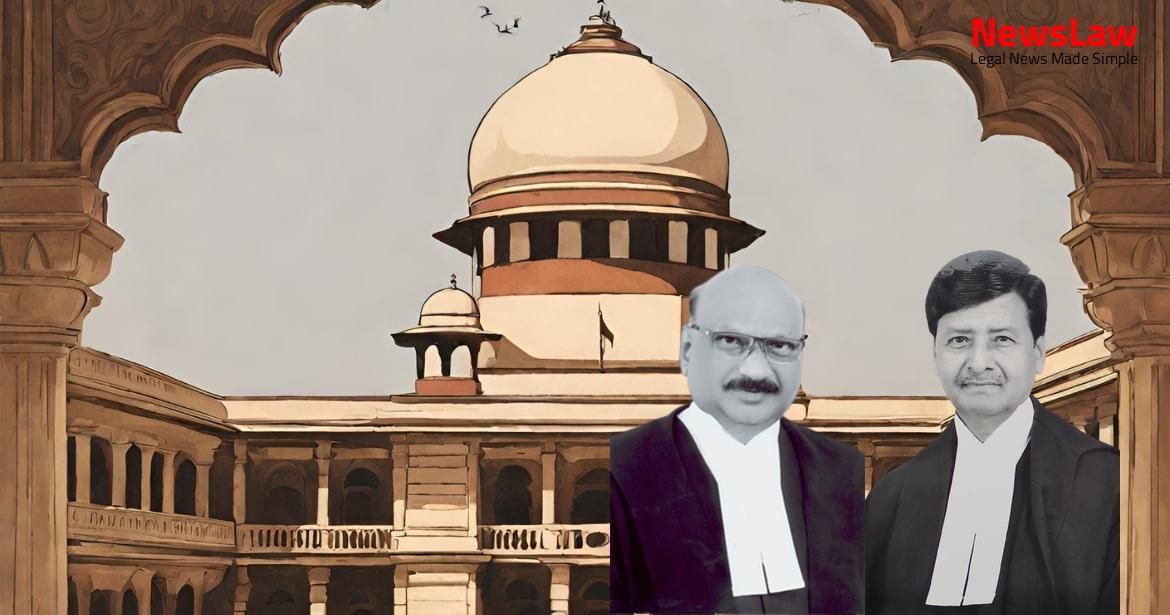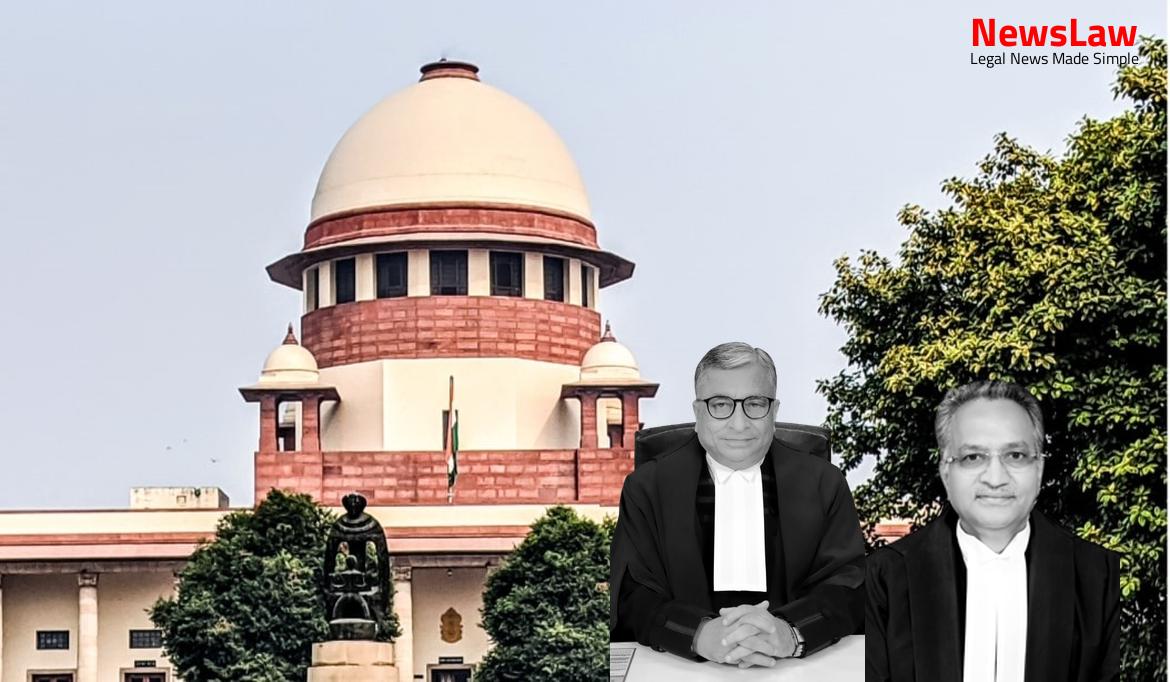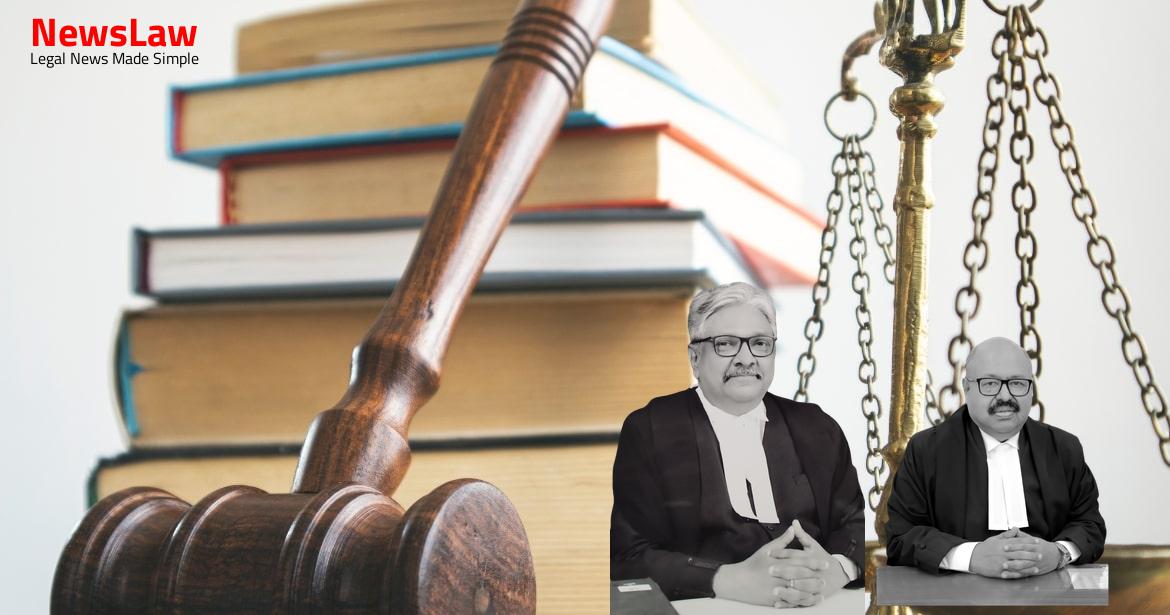Delve into the comprehensive legal analysis carried out by the High Court in a recent case, focusing on the actions taken by the authorities involved. The court’s critical examination sheds light on the adherence to laws and regulations, highlighting areas where improvements are needed to ensure justice is served correctly. Stay tuned for a closer look at the court’s findings and the implications on legal procedures.
Facts
- The respondents proceeded with the assessment and recovery from the petitioner’s bank account hastily, violating the Act.
- The impugned assessment orders dated 04.05.2016 were withdrawn by the appellant on 23.03.2016.
- Two writ petitions were filed challenging the ex parte provisional assessment order dated 15.12.2015 and the rejection of the change of address request on 02.09.2014.
- The High Court found the ex parte order was passed without proper notice and quashed it along with the recovery proceedings.
- The order rejecting the change of address request was set aside, and the Registering Authority was directed to process the application after fee deposit.
- The Assessing Authority was allowed to make fresh assessments following proper notice and an opportunity for hearing.
- A clarification was sought from the Additional Commissioner regarding the change of address, leading to an order transferring the business location from Noida to Ghaziabad.
- The High Court found that a huge amount of Rs. 49,82,01,250/- was withdrawn from the writ petitioner’s account without authority of law.
- The functioning of the appellant was viewed as seriously questionable by the High Court.
- The High Court imposed personal costs of Rs. 50,000/- on the appellant.
- Departmental action was recommended to be taken against the appellant, and it was suggested to determine if the appellant was fit for important quasi-judicial functions.
- The impugned order dated 29.02.2016 up to paragraph 34 dealt with core issues and findings.
- The High Court highlighted the deliberate attempts of the department to act against the interests of the writ petitioner.
- Costs of Rs. 2,00,000/- were imposed on the department to be paid to the writ petitioner.
- An inquiry was recommended to the Commissioner, Commercial Tax, Lucknow to fix responsibility on the erring officer for the recovery of costs.
Also Read: Ensuring Maintenance Rights: Court’s Legal Analysis
Arguments
- The appellant’s counsel argued that the adverse observations and directions by the High Court were uncalled for as the appellant was only carrying out his statutory duties in completing assessments and taking follow-up actions.
- The High Court, in a subsequent writ petition, had criticized the appellant for not adhering to their earlier order and for passing conflicting orders.
- The respondent No 1 made a mistake for which he apologized, but it was considered a forced litigation due to his actions.
- The respondent No 1 was found at fault for passing further assessment orders after earlier orders were declared without jurisdiction by the High Court.
- The change of address application by respondent No 1 was found to have several shortcomings, including not being filed within the required timeframe.
- The assessment orders impugned in the writ petition were later withdrawn by respondent No 1 rendering the petition infructuous.
- The appellant was protected by Section 67 of the UP VAT Act for actions done in good faith in discharge of duties and jurisdiction.
- The State had complied with the High Court’s orders, and further proceedings were halted due to a stay order by the Supreme Court.
- The respondent No 1 did not have any personal dispute with the appellant, and the petitions were primarily against the actions of the State and its officers.
- The High Court disapproved the ex parte actions and orders of the appellant as the Assessing Authority.
- Respondent 1 was directed to bear the costs of the litigation and Principal Secretary, Trade Tax, U.P. Government was asked to look into the actions of respondent 1 in the case.
- Despite previous strictures and penalties imposed by the Court, respondent 1 had not rectified his actions, leading to the directive for appropriate disciplinary action.
- Respondent No. 1 has only received Rs. 2,00,000 towards cost awarded on 29.02.2016
- Rs. 50,000 awarded on 02.08.2016 has not been received due to a stay order
- Respondent No. 1 has no personal grievance against the appellant
- Respondent No. 1 is willing to return the amount of costs awarded by the High Court
Also Read: Analyzing Evidentiary Value in Criminal Conviction Case
Analysis
- The High Court disapproved of the actions of the authorities for not strictly adhering to the law.
- The findings of the High Court did not suggest deliberate actions or omissions by the Assessing Authority or Registering Authority.
- The High Court’s interpretation of rules and analysis of factual aspects led to its disapproval.
- The High Court did not conclude that deliberate tactics were employed by the authorities.
- Petitioners are entitled to costs for the case.
- Appellant’s motives were not conclusively imputed in the actions as an Assessing Authority.
- High Court took a stern view unnecessarily in the given circumstances.
- Appellant was not personally impleaded in the first two writ petitions.
- No remarks should have been made without giving the appellant a chance to explain.
- The matter could have been closed after appellant withdrew the order and apologized.
- No necessity to impose further sanctions or comments on the appellant’s competence.
- Appreciation for respondent No. 1’s fair stand on costs.
- Imputing motives and lack of good faith requires more than mere error or fault.
Also Read: Legal Analysis on Suspension of Sentence in Post-Conviction Bail
Decision
- Respondent 1 is required to appear before the Court along with relevant records on 02.08.2016.
- Paragraph numbering in the judgment dated 30.03.2022 is corrected after paragraph 17 for continuity.
- Numbers ’21, 22, 23 and 24′ are to be read as ’18, 19, 20 and 21′ for paragraph continuity.
- Miscellaneous applications are disposed of.
- Remarks and observations against the appellant in the impugned orders are expunged.
- Questioned parts of the impugned orders are annulled and set aside.
- Amount of Rs. 2,00,000/- to be deposited by respondent No. 1 with the Uttar Pradesh State Legal Services Authority.
- Any action taken or contemplated pursuant to the impugned orders is rendered redundant.
- Appeals are allowed to the extent indicated.
- Chandra Prakash Mishra is the appellant.
- He is directed to file a para-wise reply to the writ petition on the next date.
Case Title: CHANDRA PRAKASH MISHRA Vs. FLIPKART INDIA PRIVATE LIMITED (2022 INSC 370)
Case Number: C.A. No.-002859-002861 / 2022



